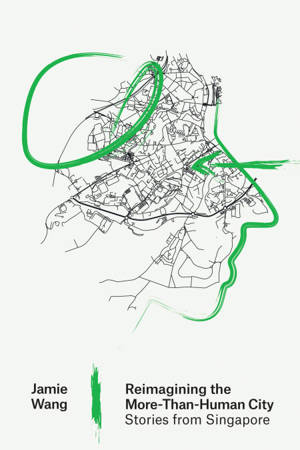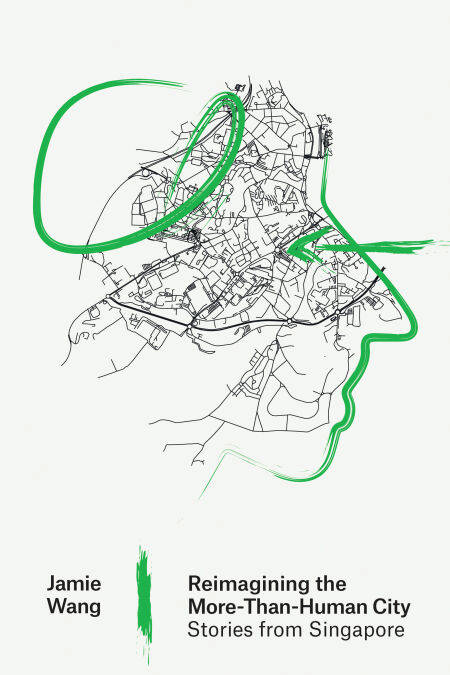
- Retrait gratuit dans votre magasin Club
- 7.000.000 titres dans notre catalogue
- Payer en toute sécurité
- Toujours un magasin près de chez vous
- Retrait gratuit dans votre magasin Club
- 7.000.0000 titres dans notre catalogue
- Payer en toute sécurité
- Toujours un magasin près de chez vous
Description
An exploration of the multifaceted urban environmental issues in Singapore through a more-than-human lens, calling for new ways to think of and story cities.
As climate change accelerates and urbanization intensifies, our need for more sustainable and livable cities has never been more urgent. Yet, the imaginary of a flourishing urban ecofuture is often driven by a specific version of sustainability that is tied to both high-tech futurism and persistent economic growth. What kinds of sustainable futures are we calling forth, and at what and whose expense? In Reimagining the More-Than-Human City, Jamie Wang attempts to answer these questions by critically examining the sociocultural, political, ethical, and affective facets of human-environment dynamics in the urban nexus, with a geographic focus on Singapore.
Widely considered a model for the future of urbanism and an emblematic new world city, Singapore, Wang contends, is a fascinating site to explore how modernist sustainable urbanism is imagined and put into practice. Drawing on field research, this book explores distinct and intrarelated urban imaginaries situated in various sites, from the futuristic, authoritarian Supertree Grove, positioned as a technologically sustainable solution to a velocity-charged and singular urban transportation system, to highly protected nature reserves and to the cemeteries, where graves and memories continue to be exhumed and erased to make way for development. Wang also attends to more contingent yet hopeful alternatives that aim to reconfigure current urban approaches. In the face of growing enthusiasm for building high-tech, sustainable, and “natural” cities, Wang ultimately argues that urban imaginings must create space for a more relational understanding of urban environments.
As climate change accelerates and urbanization intensifies, our need for more sustainable and livable cities has never been more urgent. Yet, the imaginary of a flourishing urban ecofuture is often driven by a specific version of sustainability that is tied to both high-tech futurism and persistent economic growth. What kinds of sustainable futures are we calling forth, and at what and whose expense? In Reimagining the More-Than-Human City, Jamie Wang attempts to answer these questions by critically examining the sociocultural, political, ethical, and affective facets of human-environment dynamics in the urban nexus, with a geographic focus on Singapore.
Widely considered a model for the future of urbanism and an emblematic new world city, Singapore, Wang contends, is a fascinating site to explore how modernist sustainable urbanism is imagined and put into practice. Drawing on field research, this book explores distinct and intrarelated urban imaginaries situated in various sites, from the futuristic, authoritarian Supertree Grove, positioned as a technologically sustainable solution to a velocity-charged and singular urban transportation system, to highly protected nature reserves and to the cemeteries, where graves and memories continue to be exhumed and erased to make way for development. Wang also attends to more contingent yet hopeful alternatives that aim to reconfigure current urban approaches. In the face of growing enthusiasm for building high-tech, sustainable, and “natural” cities, Wang ultimately argues that urban imaginings must create space for a more relational understanding of urban environments.
Spécifications
Parties prenantes
- Auteur(s) :
- Editeur:
Contenu
- Nombre de pages :
- 280
- Langue:
- Anglais
- Collection :
Caractéristiques
- EAN:
- 9780262381413
- Date de parution :
- 30-09-24
- Format:
- Ebook
- Protection digitale:
- Adobe DRM
- Format numérique:
- ePub

Les avis
Nous publions uniquement les avis qui respectent les conditions requises. Consultez nos conditions pour les avis.






